News and Announcements
Dongarra and ICL Celebrate Turing Award
 The morning of March 30th saw the ICL offices abuzz with excitement. Word was spreading that Jack Dongarra will receive the 2021 A. M. Turing Award from the Association of Computing Machinery. An all hands meeting had been called for 9 AM and ICL staff gathered to celebrate the news.
The morning of March 30th saw the ICL offices abuzz with excitement. Word was spreading that Jack Dongarra will receive the 2021 A. M. Turing Award from the Association of Computing Machinery. An all hands meeting had been called for 9 AM and ICL staff gathered to celebrate the news.
After the conference room had filled, Dr. Dongarra made the announcement and gave a moving presentation thanking all those who had worked with him over the last four decades of innovation in computational software. He spoke about his upcoming retirement and his time with ICL. He added that the department had a bright future and that it would move forward at this time with at least two years funding, with much more on the horizon.
 Dongarra then spoke on the presentation of the Turing Award, what it meant to him and what it means to the department. There were a few emotional moments and pauses felt by both Dongarra and the gathered department. Throughout his speech, Dongarra remained excited yet graciously humbled by the moment. Dongarra was met with a heartfelt ovation by the department and the celebration and congratulations began.
Dongarra then spoke on the presentation of the Turing Award, what it meant to him and what it means to the department. There were a few emotional moments and pauses felt by both Dongarra and the gathered department. Throughout his speech, Dongarra remained excited yet graciously humbled by the moment. Dongarra was met with a heartfelt ovation by the department and the celebration and congratulations began.

Refreshments were provided and the department members present began to mingle and chat. Dongarra and others posed for pictures. Cake was eaten, drinks were shared, and an avalanche of congratulations began. The A. M. Turing award serves as a capstone to the outpouring of love and respect that has been shown to Dr. Dongarra following his retirement announcement in late 2021.
Dongarra will receive the Turing Award June 11 at the ACM Awards Banquet in San Francisco.
Returning to the Office
The latter half of March found ICL staffers returning back to the office (even if in a limited capacity). Most of the ICL staff and researchers began working from the office for at least two days a week. ICL will continue to ramp up the return to the office. Friday Lunches resumed on March 25, we with boxed lunches from Panera. This was followed the next Friday with a pizza buffet.
Beginning Monday, April 4, everyone will need to return to an in-person presence in Claxton at least 3 days per week. The days do not have to be scheduled, nor be the same days every week, but Friday attendances are highly encouraged.
Masks are no longer being required in ICL. However, ICL will continue to monitor the situation and if local counts increase, this ruling is subject to change. Masks and sanitizers will continue to be made available in ICL.
Dongarra Featured in The Next Platform Article
Jack Dongarra featured in an online article published by the website The Next Platform in March. The article, “Will HPC be eaten by Hyperscalers and Clouds?” expands Dongarra’s critique of the HPC industry and its lack of cooperation with hyperscalers and cloud builders. The author focuses on Dongarra’s estimation that standalone HPC in the national and academic labs will not generate enough revenue to remain in operation, and that hyperscalers and cloud builders will offer applications as a service and HPC outposts or whole dedicated datacenters.
It is interesting to see the ideas and work of ICL examined by sources outside of academia. The Next Platform boasts in-depth coverage of high-end computing at large enterprises, supercomputing centers, hyperscale data centers, and public clouds. Their stated goal is to document trends by tapping into user-specific stories that reflect the global economy at large, with stories from the manufacturing, distribution, retail, energy, financial services, public, media, and other sectors. Articles like these only help to illustrate the influence of Dongarra and ICL.
Conference Reports
GTC (GPU Technology Conference) 2022
 Nvidia held its annual GPU Technology Conference (GTC) over March 21-24, and ICL was represented. The event boasted unique insights into transformation across industries, from AI to virtual worlds. With over 215,000 registrants, over 900 talks given by over 1,600 speakers, the conference provided attendees a unique opportunity to learn, connect, network and discover.
Nvidia held its annual GPU Technology Conference (GTC) over March 21-24, and ICL was represented. The event boasted unique insights into transformation across industries, from AI to virtual worlds. With over 215,000 registrants, over 900 talks given by over 1,600 speakers, the conference provided attendees a unique opportunity to learn, connect, network and discover.
ICL Research Scientist Alan Ayala’s poster “Benchmarking FFT Libraries on Large Multi-GPU Systems” focused on the performance of several FFT libraries on a large-scale system with hybrid CPU-GPU hardware. Ayala evaluated performance for the strong scaling regime of the computations of the complex-to-complex 3D transform of size 1024x1024x1024 on up to 1,024 Summit nodes.
ACS Spring 2022 Meeting
The American Chemical Society (ACS) held their Spring 2022 meeting in San Diego on March 20-24. Participating from ICL, Deborah Penchoff gave a talk titled “High performance computing in 2022 and progress in modeling rare earth elements and actinides.” Penchoff’s presentation provided a historical perspective of the evolution of HPC since the 1990s, and demonstrated progress and challenges modeling REEs and actinides as HPC moves into the Exascale era. Additionally, Penchoff chaired two sessions: (1) Data Science and Artificial Intelligence Applications in Nuclear and Radiochemistry, and (2) Computational Science Applications in Nuclear and Radiochemistry.

Interview
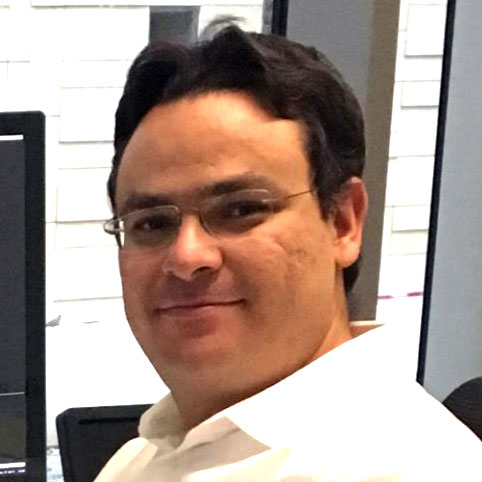
Kadir Akbudak
Where are you from, originally?
Ankara, the capital city of Turkiye.
Can you summarize your educational background?
I received the BS degree from Hacettepe University (2007), and the MS (2009) and Ph.D. (2015) degrees from Bilkent University, all in computer science.
Where did you work before joining ICL?
I worked as a research engineer at ASELSAN. Before that I was a postdoctoral researcher in the Extreme Computing Research Center at KAUST between 2016-2019 and in the Department of Computer Science at Bilkent University between 2015-2016.
How did you first hear about the lab, and what made you want to work here?
When I joined KAUST as a postdoctoral researcher, I entered the world of dense linear algebra. I was fascinated by the long-lived and widely used software libraries developed by the team of Prof Jack Dongarra. I wanted to be among the authors of the important libraries for the emerging exascale era.
What is your focus here at ICL? What are you working on?
My focus at ICL is the development of the next generation linear algebra operations for the accelerator-based HPC systems.
What are your interests/hobbies outside of work?
I enjoy building and programming vehicles, robots, etc. using Lego and Arduino together with my son and daughter. I love reading and cycling.
Tell us something about yourself that might surprise people.
In 2009, for the first time, I encountered BLAS and LAPACK libraries in the assignments of EEE 505 Introduction to Numerical Analysis course. Using these libraries was a nightmare for me and I hoped not to see them again. However, starting from my PhD studies, I have always used such libraries and enjoyed contributing them.
If you weren’t working at ICL, where would you like to be working and why?
I would continue working at ASELSAN since I enjoyed solving novel problems arising in applied sciences.

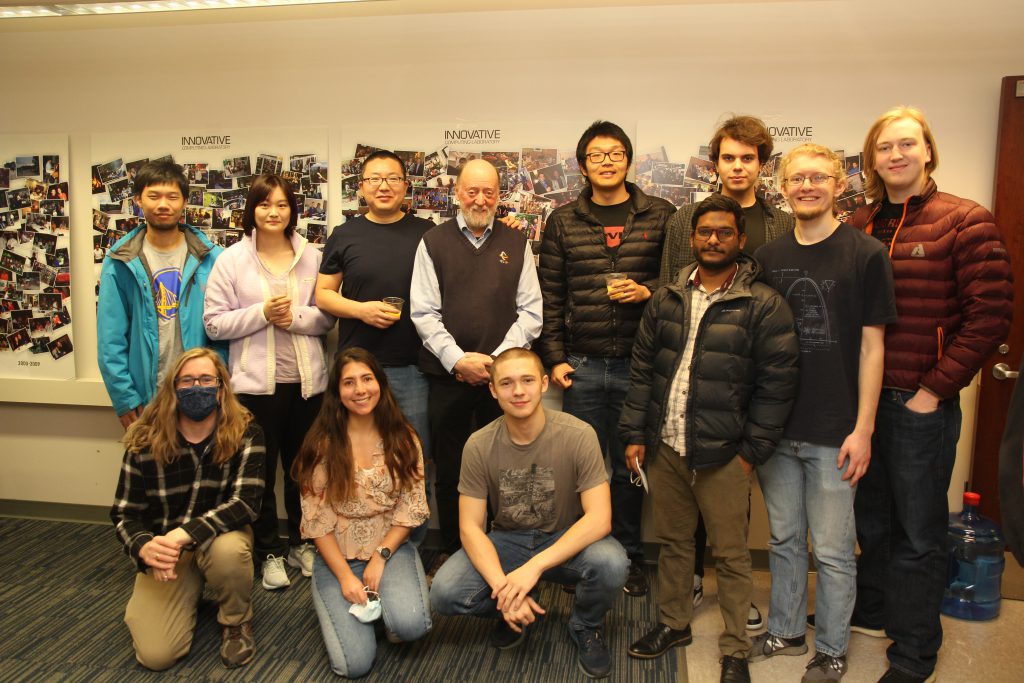

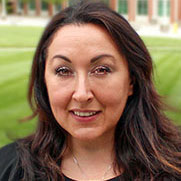







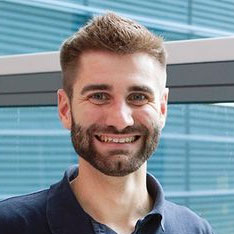





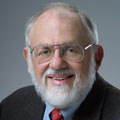





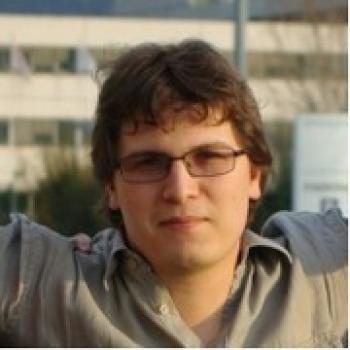

 This year’s ICL Annual Retreat will be held August 11-12, 2022 (Thursday and Friday), once again we will be at the Park Vista Hotel in Gatlinburg. The Retreat consists of the mandatory 2 full days of meetings with a dinner on Thursday evening. This year, an optional hike and dinner are being planned for Wednesday, August 10.
This year’s ICL Annual Retreat will be held August 11-12, 2022 (Thursday and Friday), once again we will be at the Park Vista Hotel in Gatlinburg. The Retreat consists of the mandatory 2 full days of meetings with a dinner on Thursday evening. This year, an optional hike and dinner are being planned for Wednesday, August 10.